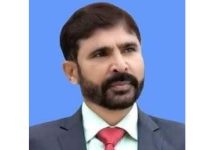Dr. Sinem Cengiz
Turkish President Recep Tayyip Erdogan embarked on a Gulf tour this week that included three stops: Kuwait, Qatar and Oman. While Qatar is not an unusual destination given the close relations between Ankara and Doha, the visits to Kuwait and Oman had particular significance.
In Kuwait and Oman, Erdogan reciprocated the visits of Kuwaiti Emir Sheikh Mishal Al-Ahmad Al-Jaber Al-Sabah and Sultan Haitham bin Tariq to Turkiye last year. The Kuwaiti emir’s visit came as part of a regional tour and was his first to a non-Arab country. Sultan Haitham’s visit to Turkiye was the first by an Omani sultan in nearly 40 years. In both visits, which had significant political and diplomatic weight, several agreements were signed and they certainly opened a new page in these states’ modest relations with Ankara. Erdogan visited these two nations to both reciprocate and solidify their evolving ties.
As an observer of Turkish-Gulf relations, I would argue that Turkish policymakers acknowledge that Ankara’s relations with Kuwait and Oman have yet to reach their full strategic potential. There is an understanding that each Gulf state has diverse interests and visions, which has led Ankara to develop distinct agendas with them. It is clear there is significant political will at the leadership level, which is crucial when it comes to the personalized nature of Turkish-Gulf relations.
There are still a lot of untapped areas in Turkiye’s relations with the Gulf nations. However, the rapidly changing regional dynamics, as well as the ongoing economic transformations in the Gulf states, are significantly affecting the pace of Turkish-Gulf ties.
Turkish policymakers acknowledge that Ankara’s relations with Kuwait and Oman have yet to reach their full potential
Dr. Sinem Cengiz
Three key aspects highlight the significance of Erdogan’s Gulf demarche.
Firstly, Erdogan’s tour came at a critical moment, just over a week after the Gaza ceasefire deal came into effect. At the regional level, Erdogan is looking for broader support from the Gulf states on Gaza and Syria. Ankara seeks Gulf support for the rebuilding of Gaza, even though Gulf states are likely to contribute through multilateral efforts rather than unilateral. On Syria, Ankara wants closer relations between the new Syrian administration and the Gulf capitals, including both political and economic engagement.
Secondly, there is the aspect of Turkiye’s relations with the Gulf Cooperation Council as a regional bloc. It seeks a free trade agreement with the GCC and consolidation of the strategic dialogue. To achieve this goal, stronger relations with each of the six members of the GCC are essential.
Thirdly, it is important to look closely at the bilateral aspects of Erdogan’s visits to Kuwait, Qatar and Oman. The Kuwait and Oman visits were to open the door to a new era in Turkiye’s relations with these states. In this new era, if their cooperation is built on a strategic rather than a tactical foundation, relations could even reach the level Turkiye has achieved with Qatar. If there is alignment among the leaderships on this vision, a strategic shift in defense cooperation could also be solidified.
During Sheikh Mishal’s visit to Turkiye last year, the two sides agreed on defense cooperation through the implementation of a protocol on defense procurement. As former Kuwaiti ambassador to Turkiye Ghassan Al-Zawawi points out: “Turkiye has the potential to become a key player in Kuwait’s armament, particularly as its defense capabilities fit Kuwait’s geopolitical needs. What Kuwait requires in terms of armament is quite different from what other Gulf states need. A breakthrough in this area could also encourage progress in other sectors of the relationship.”
It was noteworthy that in Erdogan’s entourage, which included several ministers, one name stood out: Haluk Gorgun, the head of the Defense Industry Agency.
Ankara aims to replicate the positive momentum it has established with other Gulf states in its relations with Muscat
Dr. Sinem Cengiz
Turkiye’s relationship with Oman is progressing quietly but steadily — a reflection of Muscat’s silent diplomatic approach. When Sultan Haitham visited Turkiye, I wrote that “the visit indicates that Oman is adopting a step-by-step approach to its relationship with Turkiye — starting with boosting diplomacy, followed by closer trade and energy cooperation. This, in turn, could eventually pave the way for closer military and defense collaboration.” Since then, several initiatives have been launched at all levels: political, economic and cultural.
Oman is a crucial pillar in Turkiye’s GCC strategy. Ankara aims to replicate the positive momentum it has established with other Gulf states in its relations with Muscat. Like other GCC nations, Oman is currently diversifying its economic and military policies. Turkiye wants to capitalize on this.
Turkish companies are seeking to benefit from increased participation in both Oman’s and Kuwait’s economic projects. Within a year in 2023-2024, the number of Turkish-registered companies in Oman almost doubled, reflecting Turkiye’s growing role in Oman’s economic landscape. In the same vein, Kuwait is undergoing a transformation through its economic vision. The agreements on maritime transport, direct investment and energy collaboration signed between Turkiye and Kuwait during Erdogan’s visit reflect this shift.
With Qatar, the main aspect focused on Ankara-Doha joint mediation efforts. Doha is seeking the support of a key partner to strengthen its mediation efforts, but not only in Gaza. In Libya and Sudan, Qatar prefers to share the responsibility and Turkiye stands out as an important actor that it can rely on. Sunday’s Afghanistan-Pakistan ceasefire deal was a significant outcome of their joint mediation efforts.
Overall, Erdogan’s Gulf tour aimed to move Turkiye beyond mere political alignment toward a robust strategic alignment that encompasses defense cooperation, economic integration and unified political stances on regional issues. In other words, a new Gulf-centered regional order is emerging — one in which Turkiye is seeking to secure a prominent role by leveraging both its hard and soft power capabilities.

















